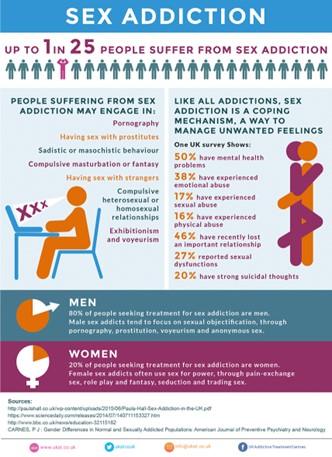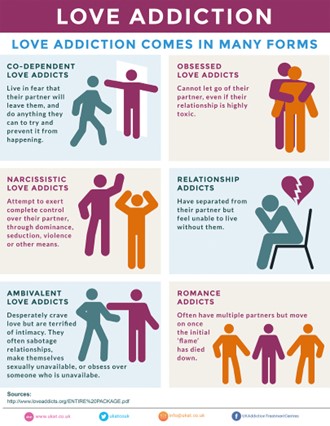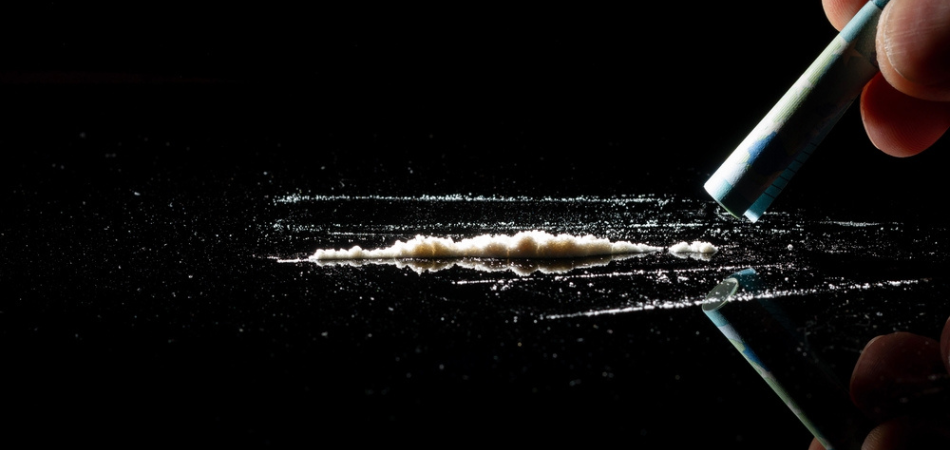
Written by:

Medically Reviewed by:
Last Updated:
January 27th, 2025
Sex and Love Addiction | Effects and Treatment
Sex and love are at the centre of human experience and play an important role in people’s lives. But when these feelings and behaviours become uncontrollable and start to interfere with your life and relationships, you may be suffering from sex or love addiction. These conditions don’t get the same attention as other forms of addiction but they can be equally harmful both to the individual and those around them. If you are suffering from sex and love addiction, there is hope. At Recovery Lighthouse, we have helped many people to overcome addiction and take back control of their lives.
What are sex and love addictions?
Sex addiction and love addiction are both behavioural addictions but there are some key differences between them.
Sex addiction is a compulsive need to engage in sexual activities. It can involve a range of behaviours such as obsessively viewing pornography, having multiple partners, excessive masturbation or engaging in risky sexual behaviour.
Love addiction is an obsessive attachment to and dependency on another person. It often involves intense feelings of infatuation and longing for the other person and can lead to inappropriate behaviour such as prolonged stalking or obsessive communication. The subject of love addiction can be a current partner, an ex or even a stranger. Love addiction can also be a generalised dependency on relationships and deep dissatisfaction when single.
Both love and sex addiction can often co-exist as the two are intertwined and feed off each other.

What are the causes of sex and love addiction?
On a physical level, sex and love addiction develop in the same way as other forms of addiction. When you are in love or have sex, the reward system in your brain is activated and releases dopamine, a neurotransmitter which makes you feel pleasure. Over time, the brain becomes accustomed to this feeling and craves it more and more, leading you to become dependent on sex or love to feel good.
One study also found that people with sex addiction may also have higher levels of Oxytocin. This hormone is released during sexual activities and creates a feeling of closeness, security and trust which can reinforce the addictive behaviour.
There can also be underlying psychological causes of sex and love addictions. To some degree, we are all hard-wired to seek out connection and intimacy. But when it comes to sex or love addiction, the causes are often deep-rooted issues such as mental health conditions, unresolved trauma, a history of abuse or neglect or low self-esteem.
People may resort to addictive behaviour like sex or love as a way to cope with uncomfortable feelings or as an attempt to fill an emptiness within themselves. Ultimately, however, sex and love only provide short-term relief if these underlying causes are not addressed and often make the symptoms worse in the long term.
Do I have a sex or love addiction?
Sex and love addiction can be very difficult to recognise as sex and love are normal parts of life. But if you are struggling and feel like your behaviour is out of control, there are some questions you can ask yourself to help determine whether or not you need help:
- Do I spend most of my time thinking about sex or love?
- Is my happiness dependent on another person or sexual activity?
- Do I change when I am in a relationship to try and please the other person?
- Have I cheated or attempted to cheat on multiple partners to fulfil my desires?
- Do I feel ashamed or guilty about my behaviour?
- Am I scared to tell other people about my thoughts and feelings?
- Do I continuously pursue new partners in an attempt to fill a void?
- Do I have difficulty forming and maintaining meaningful relationships?
- Is my preoccupation with sex or love making it hard to focus on anything else?
If you answer yes to some of the above questions, it is likely that you are struggling with a sex or love addiction and need help.
What are the effects of sex and love addiction?
Sex and love addiction can cause significant distress and negatively affect all areas of life.
People with sex addiction put themselves at risk of:
- Unwanted pregnancies
- Sexually transmitted infections
- Putting important relationships in jeopardy by cheating or making sexual demands on partners
- Legal issues due to activities like soliciting prostitutes or risky online behaviour
- Mental and emotional health problems such as depression, anxiety and low self-esteem
- Social isolation
- Financial problems caused by spending too much money on sex or dating partners
People with love addiction can face:
- Difficulty forming or maintaining relationships
- Fear of abandonment
- The excessive idealisation of partners and unrealistic expectations
- Being unable to break off relationships even when it is harmful
- Emotional manipulation of partners
- Putting important relationships in jeopardy by being overly clingy or demanding
- Mental and emotional health problems such as depression, loneliness, anxiety and low self-esteem
- Social isolation
- Legal issues due to stalking, controlling or obsessive behaviour
Common myths about sex and love addiction
There are many myths surrounding sex and love addiction and they remain widely misunderstood conditions. To help shed some light on the reality of life for sufferers, here are some common misconceptions and the truth behind them:
Myth: People with sex or love addiction are immoral or “bad people”
Fact: Sex and love addiction is a mental health disorder, not a sign of low morals. It can affect anyone, regardless of background or beliefs with sufferers needing help and understanding, not judgement.
Myth: Sex or love addicts can control their behaviour if they really want to
Fact: Like any addiction, sex and love addiction can be very hard to break on your own and getting professional help is the best way to start the process of recovery.
Myth: Love and sex addiction are less serious than other addictions
Fact: Love and sex addiction can have serious physical, mental and emotional effects on sufferers that are just as real as the effects of substance abuse and other addictive conditions.
Myth: People with sex or love addiction are only in it for the physical pleasure
Fact: This couldn’t be further from the truth as sex and love addiction often result in emotions such as loneliness, anxiety and depression.

What does sex and love rehab involve?
Due to their complex nature, sex and love addictions require a holistic approach to treatment. This is best done at an inpatient sex and love rehab centre like Recovery Lighthouse where you will be shielded from triggers and distractions and have access to a fully integrated treatment programme. Our sex and love addiction rehab treatment involves a number of evidence-based therapies which have been proven to be effective in treating these conditions, such as:
- Cognitive behavioural therapy (CBT)
- Group therapy
- 12-step facilitation
- Individual counselling
- Relapse prevention education
- Holistic therapies
- Family therapy
During your stay in sex and love rehab, you will also have the chance to form helpful peer bonds and gain valuable insights from other people’s experiences. These connections can be pivotal to the recovery process, providing ongoing support and accountability both during sex and love rehab and after treatment has ended.
Sex and love addiction aftercare
The transition from sex and love rehab back to your day-to-day life can be a challenging one and preparing for it ahead of time is essential. To help reduce the risk of relapse, there are some key steps you can take:
- Identify triggers and take steps to avoid them – Being aware of people, places and situations which could cause sex and love cravings to arise will help you to stay prepared and in control
- Build a support network – Make sure you have a strong support network of family members, friends, peers and professionals that you can turn to when things get tough.
- Attend aftercare sessions – Aftercare sessions can help to keep you on track with your recovery goals and provide accountability.
- Engage in healthy activities – Finding healthy activities such as exercise, yoga and art therapy can help to reduce cravings and improve your overall well-being.
By following these steps, you can give yourself the best possible chance of sustaining a successful recovery from sex and love addiction.
How to get help for sex and love addiction
If you are someone you know needs help with sex or love addiction, get in touch with Recovery Lighthouse today. Our team can provide advice and guidance and answer any questions you have to get you started on the road to lifelong recovery.









